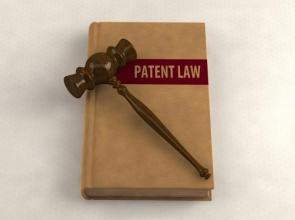I have a Ph.D. in molecular genetics with an emphasis on population biology. I have been a post-doc for several years and I am interested in changing careers and moving into law. I have thought about law school but I am intimidated by the thought of acquiring more debt, at least for now. I have been told that patent law is in need of technical specialists in the sciences and that this might lead to financial assistance later for law school. What is the reality of this and how much of a need is there for someone with my background in IP? My training is suitable for cases involving forensic evidence, as well. What are the opportunities there? How difficult might it be for someone who has spent most of their career in an academic setting to make the transition into law?

Answer
Your question is interesting and one that I encounter quite frequently as law firms continue to expand their Intellectual Property ("IP") practices and Ph.D.'s look for options outside of the lab environment.
People holding doctorates in the biotech, biology, chemistry and the computer sciences areas are in high demand by law firms with strong IP practices. Over the past five to ten years, the biotech field has grown dramatically and, as a result, law firms, and particularly IP boutiques, have developed fairly sophisticated IP practices, successfully filling their ranks with attorneys with undergraduate and graduate degrees in computer science, mechanical engineering, electrical engineering and chemical engineering. Many (but certainly not all) firms have supplemented these practices with technical advisors and patent agents, scientists who typically hold Ph.D.'s but who don't necessarily have law degrees. Sometimes, these advisors/specialists come on board with no legal training. With or without training, these specialists are employed by the firm to assist with the preparation of patent applications. Technical specialists will generally also prepare to take the patent bar exam, which allows them to prosecute patents before the United States Patent and Trademark Office ("USPTO"). Law firms usually require their specialists to take this exam within the first year or two of coming on board.
Most Ph.D.'s find the law firm environment extremely stimulating and quite challenging. Ph.D.'s often comment that they are very attracted to making the transition from the lab to the law firm environment because of the increased opportunities to write - and write more abundantly. Interestingly enough, we have found that after passing the patent bar, many patent agents decide to go on to law school for the career advancement and the increased compensation the law degree affords them. To assist them in their efforts, many law firms have in place both formal and informal law school reimbursement programs to enable these specialists to obtain a law degree. In fact, some Ph.D.'s have successfully completed their law school degree at night while working full-time in the IP department of a law firm.
Transitioning from an academic setting to the law firm environment can be a challenge. Many agents are faced with billable hour requirements (which vary among law firms), something which even a first year associate in a law firm will tell you takes some getting used to. In addition, depending on how far along you are in your career (and it sounds like you have been a post-doc for several years), beginning a career as a patent agent or specialist in a law firm may require you to take a step back in compensation in order to achieve your long-term career goals. However, the earnings potential you would achieve as a patent attorney is most likely far greater than that which you could ever achieve as a Ph.D. In your role as a patent agent or specialist, you will be required to deal with a wide range of individuals, from attorneys and paralegals within the law firm to clients and professionals outside of the law firm, so flexibility and good communication skills will be essential components for your success. Finally, law firms are extremely demanding environment, but also intellectually stimulating and rewarding. Most Ph.D.'s who contact us are already well-published in their fields and, thus, like the idea of "getting out of the lab," being exposed to new ideas, and having the added plus of doing different types of writing and analysis.
We believe that as more scientists are exposed to the law firms and the career opportunities there, that these types of jobs will become increasingly competitive. However, for Ph.D.'s with chemistry (especially organic chemistry) and biochemistry backgrounds and strong academic records, we believe excellent opportunities are fairly abundant. This is especially true given the recent developments in the genetics area, namely stem cell research and cloning.
About Harrison Barnes
No legal recruiter in the United States has placed more attorneys at top law firms across every practice area than Harrison Barnes. His unmatched expertise, industry connections, and proven placement strategies have made him the most influential legal career advisor for attorneys seeking success in Big Law, elite boutiques, mid-sized firms, small firms, firms in the largest and smallest markets, and in over 350 separate practice areas.
A Reach Unlike Any Other Legal Recruiter
Most legal recruiters focus only on placing attorneys in large markets or specific practice areas, but Harrison places attorneys at all levels, in all practice areas, and in all locations-from the most prestigious firms in New York, Los Angeles, and Washington, D.C., to small and mid-sized firms in rural markets. Every week, he successfully places attorneys not only in high-demand practice areas like corporate and litigation but also in niche and less commonly recruited areas such as:
- Immigration Law
- Workers Compensation
- Insurance
- Family Law
- Trust and Estate
- Municipal law
- And many more...
This breadth of placements is unheard of in the legal recruiting industry and is a testament to his extraordinary ability to connect attorneys with the right firms, regardless of market size or practice area.
Proven Success at All Levels
With over 25 years of experience, Harrison has successfully placed attorneys at over 1,000 law firms, including:
- Top Am Law 100 firms such including Sullivan and Cromwell, and almost every AmLaw 100 and AmLaw 200 law firm.
- Elite boutique firms with specialized practices
- Mid-sized firms looking to expand their practice areas
- Growing firms in small and rural markets
He has also placed hundreds of law firm partners and has worked on firm and practice area mergers, helping law firms strategically grow their teams.
Unmatched Commitment to Attorney Success - The Story of BCG Attorney Search
Harrison Barnes is not just the most effective legal recruiter in the country, he is also the founder of BCG Attorney Search, a recruiting powerhouse that has helped thousands of attorneys transform their careers. His vision for BCG goes beyond just job placement; it is built on a mission to provide attorneys with opportunities they would never have access to otherwise. Unlike traditional recruiting firms, BCG Attorney Search operates as a career partner, not just a placement service. The firm's unparalleled resources, including a team of over 150 employees, enable it to offer customized job searches, direct outreach to firms, and market intelligence that no other legal recruiting service provides. Attorneys working with Harrison and BCG gain access to hidden opportunities, real-time insights on firm hiring trends, and guidance from a team that truly understands the legal market. You can read more about how BCG Attorney Search revolutionizes legal recruiting here: The Story of BCG Attorney Search and What We Do for You.
The Most Trusted Career Advisor for Attorneys
Harrison's legal career insights are the most widely followed in the profession.
- His articles on BCG Search alone are read by over 150,000 attorneys per month, making his guidance the most sought-after in the legal field. Read his latest insights here.
- He has conducted hundreds of hours of career development webinars, available here: Harrison Barnes Webinar Replays.
- His placement success is unmatched-see examples here: Harrison Barnes' Attorney Placements.
- He has created numerous comprehensive career development courses, including BigLaw Breakthrough, designed to help attorneys land positions at elite law firms.
Submit Your Resume to Work with Harrison Barnes
If you are serious about advancing your legal career and want access to the most sought-after law firm opportunities, Harrison Barnes is the most powerful recruiter to have on your side.
Submit your resume today to start working with him: Submit Resume Here
With an unmatched track record of success, a vast team of over 150 dedicated employees, and a reach into every market and practice area, Harrison Barnes is the recruiter who makes career transformations happen and has the talent and resources behind him to make this happen.
A Relentless Commitment to Attorney Success
Unlike most recruiters who work with only a narrow subset of attorneys, Harrison Barnes works with lawyers at all stages of their careers, from junior associates to senior partners, in every practice area imaginable. His placements are not limited to only those with "elite" credentials-he has helped thousands of attorneys, including those who thought it was impossible to move firms, find their next great opportunity.
Harrison's work is backed by a team of over 150 professionals who work around the clock to uncover hidden job opportunities at law firms across the country. His team:
- Finds and creates job openings that aren't publicly listed, giving attorneys access to exclusive opportunities.
- Works closely with candidates to ensure their resumes and applications stand out.
- Provides ongoing guidance and career coaching to help attorneys navigate interviews, negotiations, and transitions successfully.
This level of dedicated support is unmatched in the legal recruiting industry.
A Legal Recruiter Who Changes Lives
Harrison believes that every attorney-no matter their background, law school, or previous experience-has the potential to find success in the right law firm environment. Many attorneys come to him feeling stuck in their careers, underpaid, or unsure of their next steps. Through his unique ability to identify the right opportunities, he helps attorneys transform their careers in ways they never thought possible.
He has worked with:
- Attorneys making below-market salaries who went on to double or triple their earnings at new firms.
- Senior attorneys who believed they were "too experienced" to make a move and found better roles with firms eager for their expertise.
- Attorneys in small or remote markets who assumed they had no options-only to be placed at strong firms they never knew existed.
- Partners looking for a better platform or more autonomy who successfully transitioned to firms where they could grow their practice.
For attorneys who think their options are limited, Harrison Barnes has proven time and time again that opportunities exist-often in places they never expected.
Submit Your Resume Today - Start Your Career Transformation
If you want to explore new career opportunities, Harrison Barnes and BCG Attorney Search are your best resources. Whether you are looking for a BigLaw position, a boutique firm, or a move to a better work environment, Harrison's expertise will help you take control of your future.
Submit Your Resume Here to get started with Harrison Barnes today.
Harrison's reach, experience, and proven results make him the best legal recruiter in the industry. Don't settle for an average recruiter-work with the one who has changed the careers of thousands of attorneys and can do the same for you.
About BCG Attorney Search
BCG Attorney Search matches attorneys and law firms with unparalleled expertise and drive, while achieving results. Known globally for its success in locating and placing attorneys in law firms of all sizes, BCG Attorney Search has placed thousands of attorneys in law firms in thousands of different law firms around the country. Unlike other legal placement firms, BCG Attorney Search brings massive resources of over 150 employees to its placement efforts locating positions and opportunities its competitors simply cannot. Every legal recruiter at BCG Attorney Search is a former successful attorney who attended a top law school, worked in top law firms and brought massive drive and commitment to their work. BCG Attorney Search legal recruiters take your legal career seriously and understand attorneys. For more information, please visit www.BCGSearch.com.
Harrison Barnes does a weekly free webinar with live Q&A for attorneys and law students each Wednesday at 10:00 am PST. You can attend anonymously and ask questions about your career, this article, or any other legal career-related topics. You can sign up for the weekly webinar here: Register on Zoom
Harrison also does a weekly free webinar with live Q&A for law firms, companies, and others who hire attorneys each Wednesday at 10:00 am PST. You can sign up for the weekly webinar here: Register on Zoom
You can browse a list of past webinars here: Webinar Replays
You can also listen to Harrison Barnes Podcasts here: Attorney Career Advice Podcasts
You can also read Harrison Barnes' articles and books here: Harrison's Perspectives
Harrison Barnes is the legal profession's mentor and may be the only person in your legal career who will tell you why you are not reaching your full potential and what you really need to do to grow as an attorney--regardless of how much it hurts. If you prefer truth to stagnation, growth to comfort, and actionable ideas instead of fluffy concepts, you and Harrison will get along just fine. If, however, you want to stay where you are, talk about your past successes, and feel comfortable, Harrison is not for you.
Truly great mentors are like parents, doctors, therapists, spiritual figures, and others because in order to help you they need to expose you to pain and expose your weaknesses. But suppose you act on the advice and pain created by a mentor. In that case, you will become better: a better attorney, better employees, a better boss, know where you are going, and appreciate where you have been--you will hopefully also become a happier and better person. As you learn from Harrison, he hopes he will become your mentor.
To read more career and life advice articles visit Harrison's personal blog.






